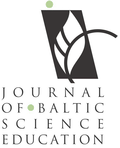USEFULNESS OF OUT-OF-SCHOOL LEARNING IN SCIENCE EDUCATION
| Title | USEFULNESS OF OUT-OF-SCHOOL LEARNING IN SCIENCE EDUCATION |
| Publication Type | Journal Article |
| Year of Publication | 2013 |
| Authors | Janiuk, RM |
| Journal | Journal of Baltic Science Education |
| Volume | 12 |
| Issue | 2 |
| Start Page | 128-129 |
| Date Published | June/2013 |
| Type of Article | Editorial |
| ISSN | 1648-3898 |
| Other Numbers | ICID: 1048515 |
| Keywords | formal education, out-of-school learning, science education |
| Abstract | Out-of-school learning has been playing an increasingly important role in science education. It can be implemented in various ways and encompasses learning activities that take place outside normal lessons reserved for compulsory education. This form of education is typically not coordinated by the school itself and young people take part in it voluntarily. It resembles “outdoor education”, which is, however, more closely linked with meeting aims stemming from formal education. Since the learning activities used in both forms of education are similar, very often solutions and experiences in one form are transferred to the other. |
| URL | http://oaji.net/articles/2015/987-1425758324.pdf |
| DOI | 10.33225/jbse/13.12.128 |
| Refereed Designation | Refereed |
| Full Text |
